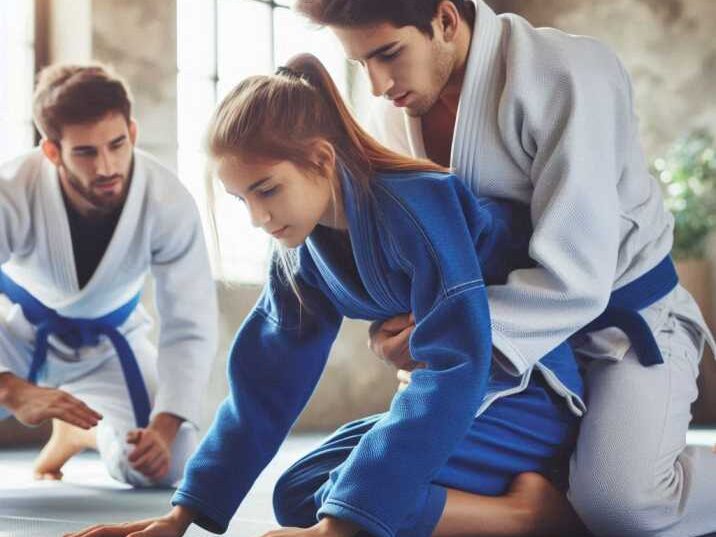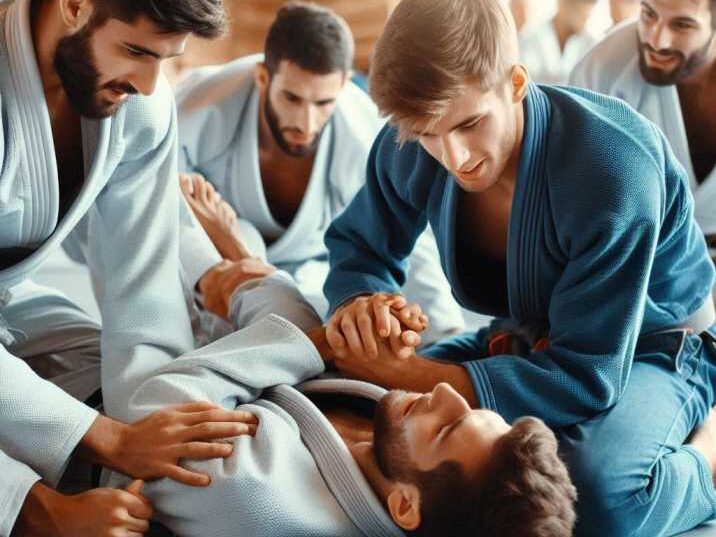Introduction
Table of Contents
Brazilian Jiu-Jitsu (BJJ) is a martial art that focuses on grappling and ground fighting. Known for its unique strategies and techniques, BJJ has gained worldwide popularity. It doesn’t just teach people how to protect themselves; it also builds confidence, discipline, and focus. But what makes Brazilian Jiu-Jitsu so effective? This article explores the reasons behind BJJ’s effectiveness and how it can benefit anyone—especially young students like you!

Why Brazilian Jiu-Jitsu is So Effective: 7 Key Reasons
1. It’s All About Technique, Not Strength
In Brazilian Jiu-Jitsu, smaller individuals can often defeat larger opponents by using precise techniques and body positioning. By leveraging leverage and body mechanics, practitioners can control or submit their opponents, proving that strength alone isn’t always the answer.
2. BJJ Builds Self-Defense Skills
BJJ is widely recognized for its self-defense abilities. In many self-defense situations, fights often go to the ground. Since BJJ focuses on ground combat, it’s especially effective in helping people defend themselves by controlling and neutralizing attackers without relying on punches or kicks.
3. Increases Focus and Discipline
BJJ training requires concentration and discipline. Practitioners must remember various techniques, observe their opponent’s movements, and react quickly. This intense focus in training can translate into better focus in school and other activities, which is especially helpful for young learners.
4. Improves Physical Fitness and Coordination
BJJ is a full-body workout. Training sessions involve pushing, pulling, twisting, and balancing, which improve overall fitness, strength, and flexibility. Young students find that BJJ not only builds muscles but also improves coordination, making it a fantastic choice for a healthy lifestyle.
5. Encourages Problem-Solving and Critical Thinking
In BJJ, each training session is like a puzzle, where you learn how to solve different challenges with creative moves. Whether it’s escaping from a tough position or finding a way to counter a hold, BJJ promotes critical thinking and problem-solving, which can be helpful in many areas of life.
6. Builds Confidence and Resilience
Learning how to handle tough situations builds confidence. Students in BJJ learn to trust their skills and become more confident in their abilities, which boosts self-esteem and resilience. Facing challenges on the mat makes them more prepared to handle obstacles off the mat, too.
7. Creates a Supportive Community
The BJJ community is known for its respect, support, and encouragement. Training in such an environment fosters friendships and creates a positive social circle where students feel motivated and safe, which enhances the overall training experience.
How BJJ Techniques Work: An In-Depth Look
1. Ground Control and Submissions
Ground control is a crucial skill in BJJ. Practitioners learn to hold their opponents down using techniques such as the “guard” and “mount.” This gives them control and helps keep them safe. If necessary, they can then apply submissions like arm locks and chokes to neutralize an opponent without hurting them.
2. Leveraging Body Position and Balance
Unlike other martial arts that rely on strikes, BJJ emphasizes using your body’s position to gain control. Techniques like “hip escapes” and “sweeps” allow practitioners to maneuver around opponents or reverse tough positions. This focus on body positioning helps practitioners outsmart opponents who might be physically stronger.
Training Requirements for Brazilian Jiu-Jitsu
1. Consistency in Practice
Like any sport or skill, practising consistently is key to improvement. BJJ requires patience and commitment. Over time, students learn techniques, refine their skills, and build muscle memory.
2. Mental Toughness and Focus
BJJ can be mentally challenging. Students must concentrate to understand techniques, observe their sparring partners, and react appropriately. Building mental resilience is part of the journey and one reason BJJ training is so effective.
3. Safety and Respect for Training Partners
BJJ emphasizes safety and respect for others. Practitioners learn to train safely by tapping out when necessary and ensuring their partners don’t get hurt. This respect for others creates a supportive and safe training environment.
Brazilian Jiu-Jitsu for Young Students
1. Improved School Focus and Performance
The focus developed in BJJ often translates to improved concentration in school. Students who practice BJJ can focus longer, are better at managing stress, and often perform better academically.
2. Building Friendships and Social Skills
Young BJJ students interact and work closely with training partners, often forming strong bonds. This environment improves their social skills, making them better at teamwork and collaboration in both school and everyday life.
Table of Information: Brazilian Jiu-Jitsu Facts
| Aspect | Details |
|---|---|
| Country of Origin | Brazil |
| Focus | Grappling, Ground Fighting |
| Key Skills Developed | Focus, Discipline, Confidence |
| Popular for Self-Defense | Yes |
| Age Range for Training | Kids to Adults |
Conclusion
Brazilian Jiu-Jitsu is one of the most effective martial arts, especially for young people who want to build focus, discipline, and confidence. It teaches valuable skills that go beyond self-defense, from improved focus in school to stronger friendships and better physical fitness. So, whether you’re looking to learn self-defense or just want a fun, challenging way to get active, BJJ might be the perfect choice!

FAQs About Brazilian Jiu-Jitsu
1. Is Brazilian Jiu-Jitsu suitable for kids?
Yes! BJJ is great for kids as it teaches self-defense, discipline, and focus in a fun and safe environment.
2. Do you need to be strong to practice Brazilian Jiu-Jitsu?
No, BJJ focuses on technique over strength, making it accessible to people of all body types.
3. How does BJJ help with focus?
BJJ training requires concentration, which can improve focus in school and other activities.
4. What is the main goal of BJJ in self-defense?
The main goal is to control and neutralize an opponent safely, without relying on strikes.
5. How long does it take to get good at BJJ?
Progress depends on the individual, but consistent practice can lead to noticeable improvement in a few months.


